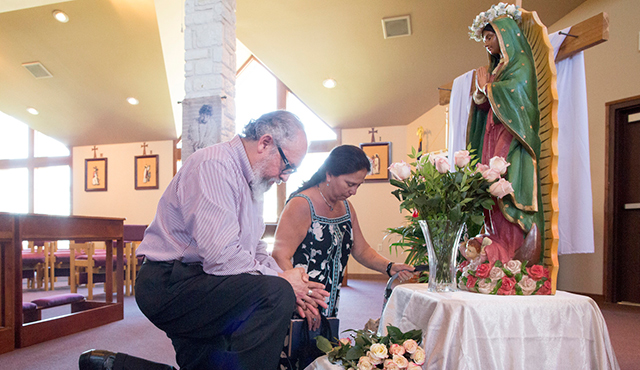“Religious freedom remains one of America’s most precious possessions. And, as my brothers, the United States Bishops, have reminded us, all are called to be vigilant, precisely as good citizens, to preserve and defend that freedom from everything that would threaten or compromise it.”
—Pope Francis, September 2015
One would assume that in 2017 religious freedom in the United States would be sacrosanct and well supported by strong local, state and federal laws. For most of us, that assumption is correct.
Still, the right we hold so dearly – to freely and openly practice the values and tenets of our faith – is being challenged, perhaps more than ever before.
Attacks against religion in the Unites States are at an all-time high, according to a report released by the First Liberty Institute, a legal organization fighting for religious freedom in America. The institute identified 1,285 attacks on religion in the U.S. in 2015.
Several different religious groups were targeted in America throughout the year, according to the report, including Christians, Muslims, Jews and people of Native American faiths.
“Hostility to religion in America is rising like floodwaters, as proven by the increased numbers of cases and attacks documented in this report,” wrote Kelly Shackelford, president, CEO and Chief Counsel of First Liberty. “This flood is engulfing ordinary citizens who simply try to live normal lives according to their faith and conscience.”
For Catholics, it’s frightening how immigration laws and policies increasingly threaten our deeply held values of Christian charity and the right of members of all faiths to openly practice their religion. At home, several states have passed laws forbidding the Church’s pastoral care to immigrants, what some lawmakers call ‘harboring’ undocumented immigrants.
“Part of the reason for this is the growth of secularism in the U.S.,” explains Lorin Geitner, a lecturer in Chapman University’s Dale E. Fowler School of Law. “Secularists see religion as a pretext for discrimination against certain marginalized populations.” An attorney with a master’s degree in religion from Claremont Graduate University, Geitner has published several articles dealing with the interface of law with religion.
The U.S. Conference of Catholic Bishops declared that religious freedom continues to be threatened in the U.S., as proven by these circumstances:
- The mandate of the Department of Health and Human Services for sterilization, contraception and abortion-inducing drugs forces religious institutions to facilitate or fund a product contrary to their own moral teaching.
- The federal government tries to define which religious institutions are ‘religious enough’ to merit protection of their religious liberty.
- Boston, San Francisco, the District of Columbia, and the state of Illinois have forced local Catholic Charities out of adoption or foster care services by revoking their licenses, ending government contracts, or both, because the organization refused to place children with same-sex couples or unmarried opposite-sex couples who cohabit.
- New York City adopted a policy that barred the Bronx Household of Faith and other churches from renting public schools on weekends for worship services, even though non-religious groups could rent the same schools for other uses.
- After years of excellent performance by the U.S. Conference of Catholic Bishops’ Migration and Refugee Services in administering contract services for victims of human trafficking, the federal government changed its grant specifications to require MRS to provide or refer for contraceptive and abortion services in violation of Catholic teaching.
- In its over-100-year history, the University of California Hastings College of Law has denied student organization status to only one group, the Christian Legal Society, because it required its leaders to be Christian.
Chapman’s Geitner believes the best, long-ranging solution to anti-Muslim violence, deportation of undocumented individuals and religious discrimination against non-Christians is to encourage better understanding of the world’s diverse religions.
“The obvious solution it to make more effort at interfaith dialog,” he observes. “It’s hard to demonize people if you know someone of that religion and understand their faith.”

